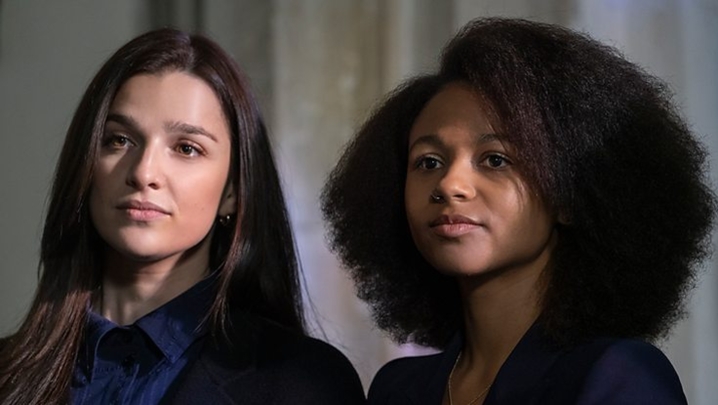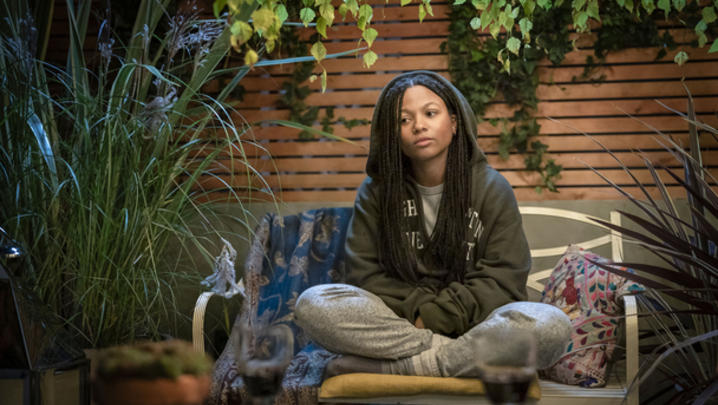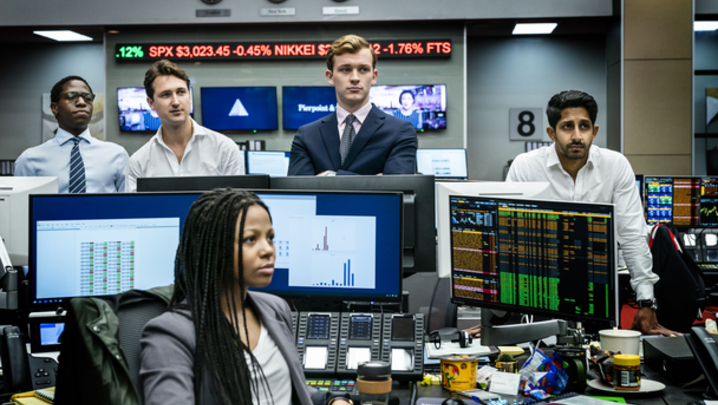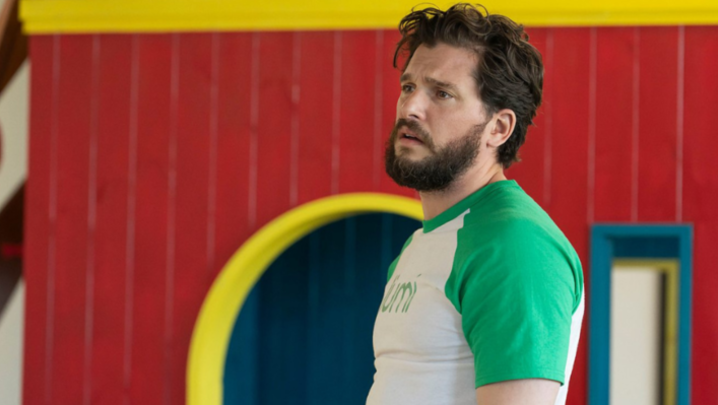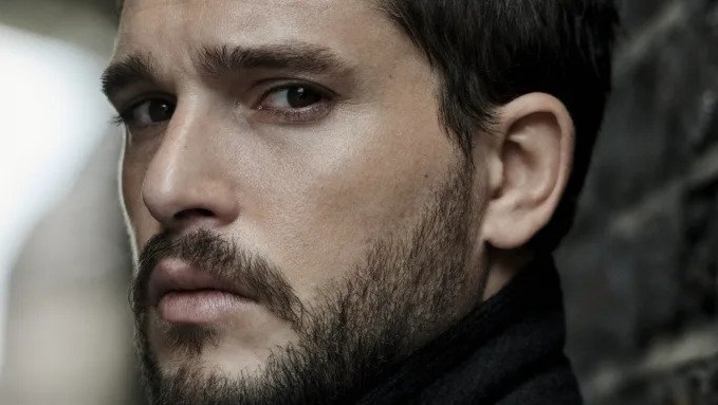How’s your knowledge of the equities market?
What about the difference between a bond’s coupon and yield-to-maturity? They’re the same if the paper’s trading at par (obviously), but what happens when that fateful line on your Bloomberg terminal starts to nosedive? Answer quickly, because the MD needed to know five minutes ago, and it won’t be long before he starts shouting. Again.
Welcome to the world of Industry, where stakes are high and tempers short. The ego and power games that comprise a typical day in the office manage to make jargon sexy, and sex soulless. Drugs are also present, with class As so routine as to become almost boring (“rote”, as an industry/Industry insider might put it). Last week, the show won an RTS Programme Award for Drama Series, one of Industry’s first major gongs.
It’s amazing that, in amongst the chaos and the acronyms, co-creators Mickey Down and Konrad Kay managed to find a story the average people can understand.
“Well, we didn’t really,” Kay corrects me. “We didn’t make it accessible to the layman for at least two seasons.”
The show initially followed a group of graduates trying to secure a permanent position at fictional investment bank Pierpoint. Series two brought the threat of a potential merger with the New York office. It wasn’t until the third series that things got a bit more accessible, with the gang dipping their toes into the (slightly) more familiar world of green energy.
Down and Kay were less interested in clarity than telling a story that was A.) entertaining and B.) true to the world of finance, they explain over Zoom. Both had brief, post-uni stints in the eponymous industry, meaning they had the inside track on what would make a show like this authentic. Their first move was steering clear of A-listers.
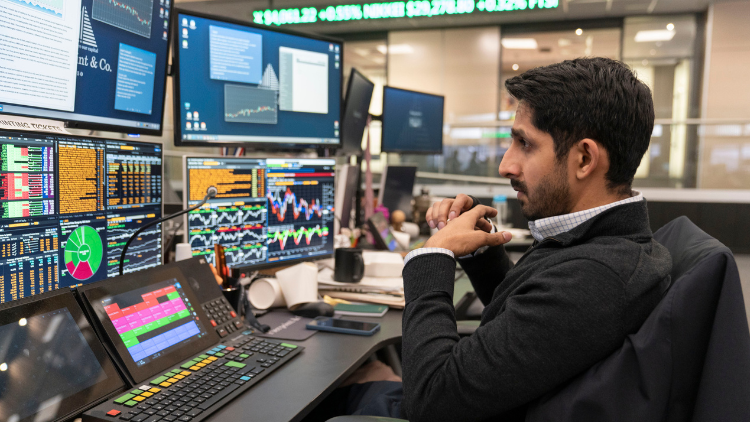
(credit: BBC/Bad Wolf Productions/HBO/Nick Strasburg)
“Part of the creative sleight of hand of the first season was trying to cast people who didn’t look like stars, because we were trying to do this super, hyper-realistic look at a trading floor, and we wanted the graduates to look like children,” Kay says.
“We built this massive set, so for a lot of the actors, it was a similar feeling to when me and Mickey walked into a workplace for the first time, because they were as overwhelmed and as young as we were.”
That’s not to say they buckled under the pressure. If you’re not an expert in EBITDA or yield curves, the actors’ performances are the key to deciphering Industry. A share price ticking up could mean anything. Myha’la’s look of quiet horror as Harper Stern, however, lets you know in no uncertain terms who it helps, and who it hurts.
Of course, Industry isn’t all silent glances. The soundtrack is almost as loud as the characters, who are prone to screaming matches which only get more intense as the show progresses. A lot of the characters who make the best sparring partners started Industry on separate teams within Pierpoint. As things progressed, it made sense for Yasmin and Harper, for example, to spend more not-so-quality time together. Why the wait?
“We didn’t know what we were doing,” Kay says matter-of-factly. “What you saw in seasons one and two were two guys building the plane as we flew it.”

Series one was more about finding their creative voice than honing it. Come the second series, the duo became more cognisant of TV writing tenets, like tying different plot strands together. As Kay describes it:
“We did the punk record, then we did the really studio-y record.”
“Season three was good because we were like ‘okay, we know how to do the studio record, let’s go back to that first sensibility and we can do something that feels free but also adheres to the structural stuff that we learnt from the second season’.”
Now, the show reaches an audience wide enough to coax in the big-name talent Down and Konrad used to avoid. In series three, green entrepreneur Henry Muck is played by Game of Thrones royalty Kit Harrington.
“We didn’t really make [Industry] for anyone but ourselves,” Down explains. “The fact that it’s resonating with people is kind of a plus.”
“Obviously you have the young people who really like it,” he says, “[but also] these African aunties that are distant relations of mine who watch it on VPNs in Ghana, they love the show.”
Why?
“Probably the fact that I write it,” he laughs, before offering something more pensive: “Watching people behave really badly is cathartic if you’re a person who behaves well most of the time.”
There’s a selfish kind of authenticity to someone pursuing a goal, any goal, no matter what. It might not be honest, but it is revealing. There’s a reason we say ‘naked’ ambition. Those stakes are what put a show ostensibly about earnings per share and IPO execution into human, worryingly relatable territory.
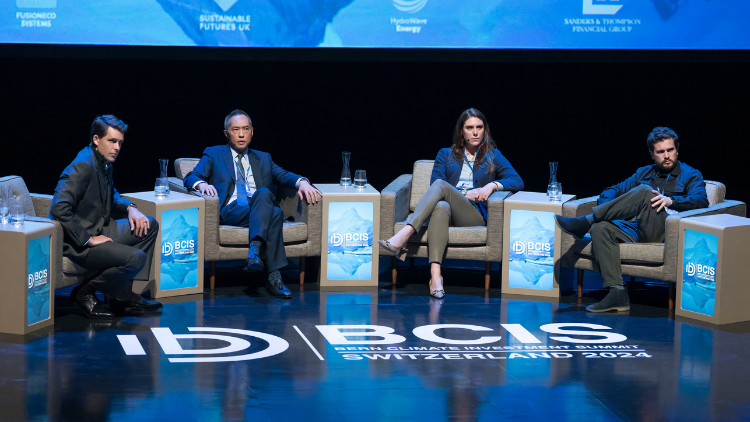
and Kit Harington as Henry (credit: BBC/Bad Wolf Productions/HBO/Simon Ridgway)
Another thing keeping people watching is the show’s refusal to judge, in sharp contrast to how opinionated (and easily judged) its characters are.
“The show’s never meant to be didactic,” Down tells me. “As soon as you get into the mode of lecturing or hectoring the audience, the show loses something.”
“[It’s] not a vessel for us to spout political opinions or our opinions in finance. We both worked in it, so we see the good and bad in it.”
As the show gets more accessible, the duo are having to get used to more creative criticism.
“HBO has begun to [give notes on] the business stories because they’ve started to understand them,” Down explains.
To begin with, “we also didn’t understand it,” he admits.
Still, as anyone at Pierpoint will tell you, ignorance can be fatal. Did you find the difference between coupon and yield-to-maturity? The MD wanted an answer ten minutes ago.


